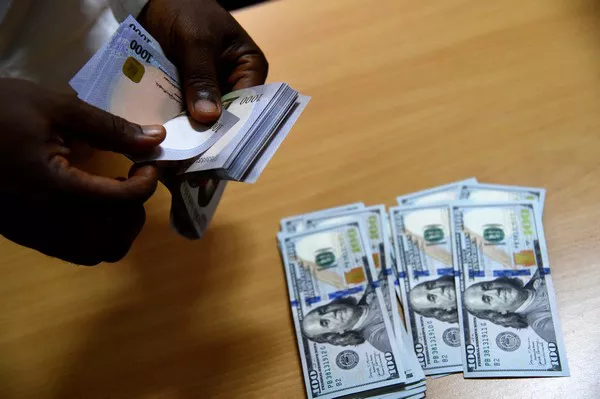The U.S. dollar has long been regarded as the world’s primary reserve currency, underpinning global trade and financial stability. However, the idea of a U.S. dollar collapse is not merely hypothetical; it raises concerns about a domino effect that could reverberate across the global economy. In this article, we will explore the potential consequences of a U.S. dollar collapse and the far-reaching impacts it could have on various aspects of the global financial landscape.
Economic Turmoil:
A collapse of the U.S. dollar would likely trigger widespread economic turmoil, both domestically and internationally. The United States, being the world’s largest economy, plays a pivotal role in global trade. A weakened or collapsed U.S. dollar could result in a significant loss of confidence in financial markets, leading to a cascade of negative effects.
The first and most immediate consequence would be a surge in inflation. As the value of the U.S. dollar plummets, the cost of imported goods and services would skyrocket, hitting consumers and businesses alike. This inflationary pressure could erode purchasing power, decrease consumer confidence, and disrupt long-term economic planning.
Global Trade Disruptions:
The U.S. dollar’s collapse would undoubtedly disrupt global trade dynamics. Many countries rely on the stability of the dollar for international transactions. A sudden shift away from the dollar as the primary reserve currency could lead to a reevaluation of trade relationships and a surge in protectionist measures.
Nations heavily dependent on U.S. imports or exports could face severe economic shocks. Exchange rate volatility and uncertainty in international markets could hinder the flow of goods and services, triggering a global economic downturn.
Debt and Financial Instability:
The global financial system is intricately tied to the U.S. dollar. A collapse of the dollar could send shockwaves through financial institutions worldwide. Countries holding substantial amounts of U.S. debt would face challenges in servicing and repaying their obligations.
The value of dollar-denominated assets held by foreign governments and investors would plummet, causing substantial losses. This could result in a chain reaction of financial instability as institutions grapple with devalued assets, potentially leading to a wave of bankruptcies and a credit crunch.
Shift in Global Power Dynamics:
The collapse of the U.S. dollar would not only have economic repercussions but could also reshape geopolitical power dynamics. The United States’ influence in international affairs is closely tied to the strength of its currency. A weakened dollar could diminish the nation’s ability to project power and influence global events.
Other major economies, such as China and the European Union, might step in to fill the void left by the weakening U.S. dollar. This could lead to a redistribution of economic and political influence, potentially sparking geopolitical tensions as nations jockey for position in the new global order.
Rise of Alternative Currencies:
In the wake of a U.S. dollar collapse, there would likely be a renewed interest in alternative reserve currencies. Countries and investors may seek refuge in stable currencies such as the Euro, Japanese Yen, or even emerging digital currencies like Bitcoin. Central banks might diversify their foreign exchange reserves to mitigate the risk associated with a single dominant currency.
The shift away from the U.S. dollar as the primary reserve currency could prompt a reevaluation of the international monetary system. Discussions around the creation of a new global reserve currency or the expansion of the International Monetary Fund’s Special Drawing Rights (SDRs) could gain traction.
See Also What Happens If Us Dollar Is No Longer Reserve Currency
Social and Political Unrest:
Economic instability resulting from a U.S. dollar collapse could have profound social and political consequences. Rising unemployment, diminished living standards, and a sense of uncertainty could fuel social unrest. Governments may struggle to maintain social order as citizens demand solutions to the economic challenges.
Political leaders may face increased pressure to implement reforms, and the potential for political upheaval could rise. Extreme ideologies, nationalism, and populism might gain traction in the midst of economic turmoil, further complicating efforts to restore stability.
Conclusion:
The collapse of the U.S. dollar would be a seismic event with far-reaching consequences for the global economy. The interconnected nature of international finance means that no country would be immune to the fallout. While a U.S. dollar collapse remains a low-probability scenario, the potential impacts underscore the importance of addressing economic vulnerabilities, fostering global cooperation, and maintaining a stable international monetary system.


